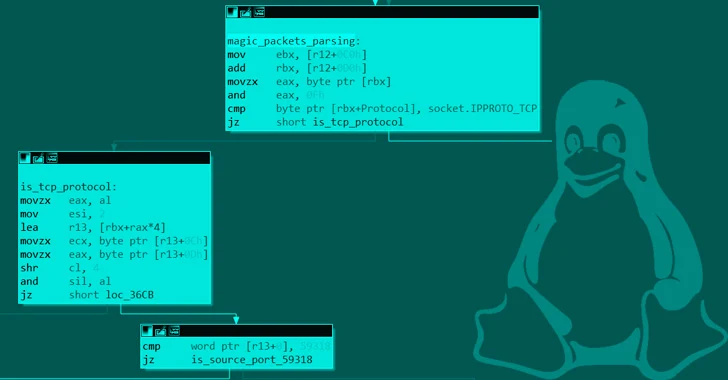A new covert Linux kernel rootkit named Syslogk has been spotted under development in the wild and cloaking a malicious payload that can be remotely commandeered by an adversary using a magic network traffic packet.
"The Syslogk rootkit is heavily based on Adore-Ng but incorporates new functionalities making the user-mode application and the kernel rootkit hard to detect," Avast security researchers David Álvarez and Jan Neduchal said in a report published Monday.
Adore-Ng, an open-source rootkit available since 2004, equips the attacker with full control over a compromised system. It also facilitates hiding processes as well as custom malicious artifacts, files, and even the kernel module, making it harder to detect.
"The module starts by hooking itself into various file systems. It digs up the inode for the root filesystem, and replaces that inode's readdir() function pointer with one of its own," LWN.net noted at the time. "The Adore version performs like the one it replaces, except that it hides any files owned by a specific user and group ID."
Besides its capabilities to hide network traffic from utilities like netstat, housed within the rootkit is a payload named "PgSD93ql" that's nothing but a C-based compiled backdoor trojan named Rekoobe and gets triggered upon receiving a magic packet.
"Rekoobe is a piece of code implanted in legitimate servers," the researchers said. "In this case it is embedded in a fake SMTP server, which spawns a shell when it receives a specially crafted command."
Specifically, Syslogk is engineered to inspect TCP packets containing the source port number 59318 to launch the Rekoobe malware. Stopping the payload, on the other hand, requires the TCP packet to meet the following criteria -
- Reserved field of the TCP header is set to 0x08
- Source port is between 63400 and 63411 (inclusive)
- Both the destination port and the source address are the same as that were used when sending the magic packet to start Rekoobe, and
- Contains a key ("D9sd87JMaij") that is hardcoded in the rootkit and located in a variable offset of the magic packet
For its part, Rekoobe masquerades as a seemingly innocuous SMTP server but in reality is based on an open-source project called Tiny SHell and stealthily incorporates a backdoor command for spawning a shell that makes it possible to execute arbitrary commands.
Syslogk adds to a growing list of newly discovered evasive Linux malware such as BPFDoor and Symbiote, highlighting how cyber criminals are increasingly targeting Linux servers and cloud infrastructure to launch ransomware campaigns, cryptojacking attacks, and other illicit activity.
"Rootkits are dangerous pieces of malware," the researchers said. "Kernel rootkits can be hard to detect and remove because these pieces of malware run in a privileged layer."




























